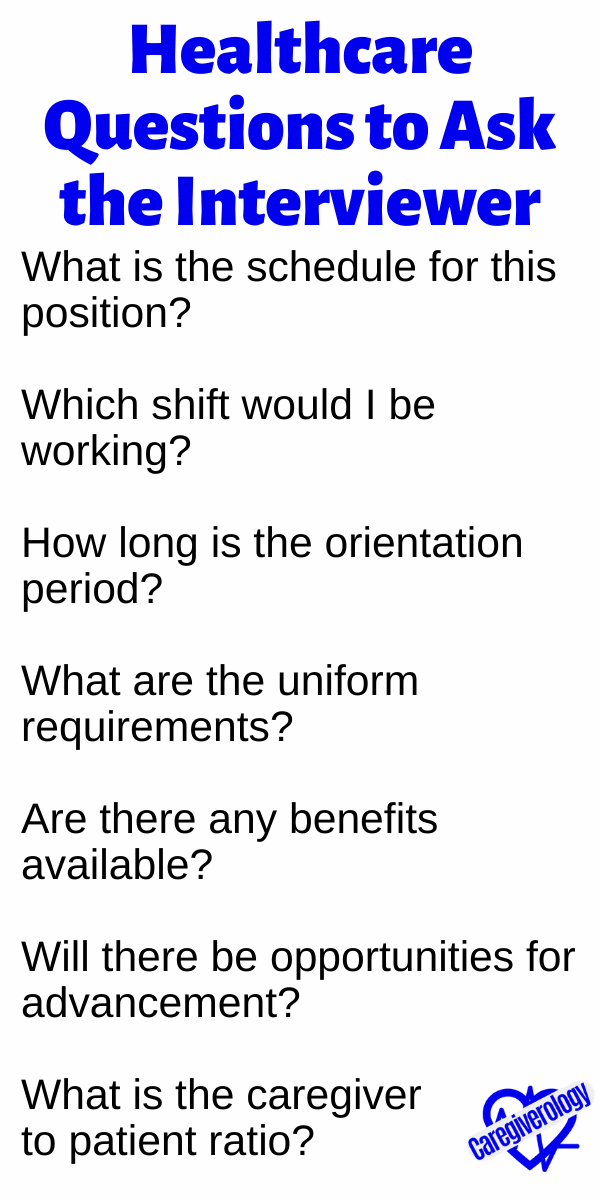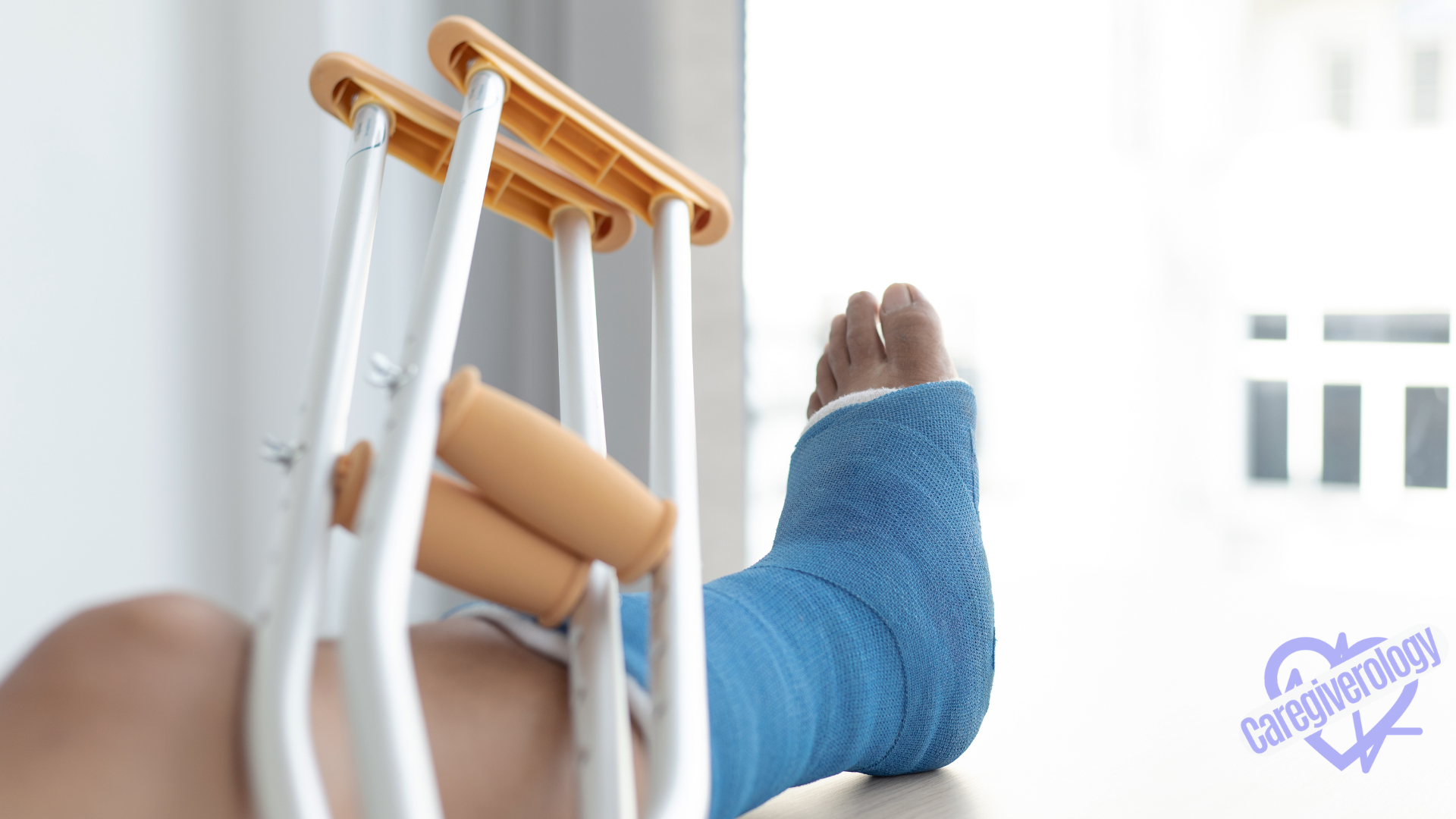Caregiver Interview Tips and Tricks
Do you have a caregiver interview coming up but are not quite sure what to do? It is completely normal to be nervous but these tips should help settle your worries.
Be on time What to wear Smell nice Right attitude Be honest No negativity Question Your questions Immediate offer More tips Pin
Be On Time
One of the most important factors of any interview is to be on time. First impressions are everything and if you don't show up on time, the interviewer will assume you won't ever show up on time. Not even a minute late should be acceptable.
Better yet, be just a few minutes early but only five to ten minutes at the most. Otherwise, the interviewer may feel pressured into seeing you early which may be an inconvenience for them. This could cause them to be irritated at the beginning of or even throughout the entire interview. If you arrive really early, just stay in your car in the parking lot.

What To Wear
For a caregiver interview, you should dress nicely. Of course a tuxedo or even a suit may be a little much, but jeans and a tee shirt would be even worse. Try to find a middle ground between the two. Just remember that too formal is better than not formal enough.
Wearing caregiver scrubs and shoes are also usually acceptable as long as they are a single and solid color with no prints and the top and bottom are the same color. Just be sure they are clean and unwrinkled. A lab coat could also be worn if desired. If the information is available, wearing the color that matches your title and the unit you will be working on would be a nice touch.
Men, you should wear a pair of dress pants or khakis. Preferably a long sleeve button-up shirt. Don't forget to tuck it in. A tie would be optional but a nice gesture. Of course if the shirt is tucked in, it would look silly without a belt, preferably black or dark brown in color. The shoes should be dress shoes. No tennis shoes or flip flops.
Women, you could wear the same clothes as a man except a skirt would be acceptable as well. You could also wear a formal blouse or sweater. High heels would be acceptable instead of dress shoes as long as the heels aren't too high. Just a couple of inches at the most.
I would also recommend no piercings other than one set of earrings and no visible tattoos. Women should also not put on a heavy amount of makeup and should keep their hair pinned back and out of their face. Not only will the interviewer find such things inappropriate, patients want to be cared for by a person who seems modest and professional.
Smell Nice, but Not too Nice
You should smell professional. That means no smoking prior to arriving. If you do smoke, do so before showering, brushing your teeth, and getting dressed. This includes avoiding being around others while they are smoking. Just because you don't smell anything doesn't mean nobody else can.
You should also avoid heavy amounts of perfume and cologne. Too much can be off putting for not only the interviewer, but many patients also find it bothersome. I've actually witnessed many patients complain of someone using too much perfume to the point of refusing their care. Using deodorant and wearing clean clothes should be enough to smell clean.
Have The Right Attitude
Attitude is the most important aspect of a caregiver interview. Be sure to be as positive as possible. When working with patients who are ill, have pain, or dementia, you must keep a positive attitude. Otherwise, they won't want your care. Smiling often is a great way to show this. Employers like to hire people who look happy to come to work.
Always keep eye contact. You have to show that you are a good listener and don't get distracted easily. If you don't look at the interviewer, it makes it seem like you are ashamed or are hiding something. You also have to keep in mind that observing your patients often plays a big factor in how well you care for them. Show them you are observant and attentive.
When working with patients, it is extremely important to be a confident caregiver. You must show the interviewer that you can and will be one. If you can't be confident during an interview, how will you be on the job? Shaking hands firmly conveys this well and makes a great first impression.
Be Honest
Answer each question asked as truthfully as possible. People who interview others are often very good at catching someone in a lie. But even if you do fool them at first, the truth will eventually come out.
For example, if you are asked if you can handle stress well, and you say "yes, very well", you better mean it. They ask you these types of questions for a reason. Most, if not all, caregiver jobs get stressful from time to time. If you get overwhelmed when things get tough, you will either have a nervous breakdown and quit the job, or you will be fired for lack of qualities needed for the job.
No Negativity
Make sure you answer all questions asked during your caregiver interview in a positive light. This doesn't mean lie. There are ways to answer questions positively and truthfully at the same time. Negativity is a big no no in the medical field.
For instance, never talk about negative job experiences in the past, especially ones that puts others down. Even if what you are saying is justified, it just makes you look like a negative person who finds fault in others.

A Difficult Question
A common question asked in a caregiver interview would be "What is something you are good at and what is something you should improve on?" This question is a difficult one because people don't want to say anything negative about themselves. Give a truthful answer.
The truth is, everyone has areas that they struggle in and the interviewer knows that. If you simply say "I don't need to improve on anything", that just tells them that you are only telling them what they want to hear. This is just another example of being honest.
You also want to answer each question thoroughly. Answering questions with simple yes or no answers makes you seem uninterested or ill informed. It also shows that you are good at communicating which is a great trait to have on the job while interacting with patients. Just don't bore them with long stories that don't add significant value to your character.
Ask Some Questions of Your Own
There will come a point in the interview where you will be asked if you have any questions. Be sure to have some ready when that time comes. It is a great opportunity to show you are truly interested in the position and are eager to learn more. The worst thing you can say is simply "no".
Here are a few potential questions to ask. Just pick out two or three at the most. You could even bring a pen and notepad to write the answers down. Not only will you be able to refer to them later, it will also show you are engaged in the answers given.
- What is the schedule for this position?
- Which shift would I be working?
- How long is the orientation period?
- What are the uniform requirements?
- Are there any benefits available?
- Will there be opportunities for advancement?
- What is the caregiver to patient ratio?
What if I get an Offer Immediately?
If you do get offered a position immediately, it is okay to tell them you need time to think it over or compare other offers you may have gotten or may potentially get. Just be sure you get back with them soon, no later than 24 hours, to give them an answer.
If you decide to accept the position immediately, be sure to find out this information before leaving:
- For orientation, when is the starting date and time and where do I go?
- What are the uniform requirements for orientation as well as the job itself?
- Are there any additional requirements in order to begin orientation such as a physical, TB test, or background screen?
- What other additional paperwork needs to be submitted before beginning orientation?
- What is the name of my supervisor/manager?

A Few More Tips
It never hurts to research the facility, such as a hospital, you are getting interviewed for. A simple online search can get you basic information that you can mention during the interview. This will show that you have some specific interest and not just looking for any job you can find.
Also, don't forget to bring any documents they may potentially ask for including your resume even if you know that the interviewer already has one. It never hurts to have an extra one on hand. Be ready to answer any question possible regarding it during your caregiver interview. Click this resume link if you need help creating an effective one.
At the end of the interview, regardless of the outcome, shake their hand firmly and thank them for their time. You could also send them either an email or physical note thanking them for their consideration. Just be sure to do this within the first 24 hours. This will likely further cement you in their thoughts for consideration.
Pin this content!
Caregiver Employment Tips and Resources
From Caregiver Interview Tips to Home
Recent Articles
-
What to Expect During Post-Operative Recovery at Home - Caregiverology
Apr 08, 25 08:21 PM
Surgery may be over, but the journey to full recovery is just beginning, and for many people, the hardest part happens after they leave the hospital. -
How to Plan for Aging: Financial, Health, and Lifestyle Considerations
Mar 29, 25 12:40 PM
Did you know that 70% of people over 65 will need some form of long-term care? Yet, many delay planning until it’s too late. Aging is inevitable, but how we experience it depends on preparation. -
Speech Disorders: How to Know When It's Time to See a Professional
Mar 27, 25 07:05 AM
When it comes to human interaction, we need to be able to communicate effectively.






New! Comments
Have something to say about what you just read? Leave a comment in the box below.